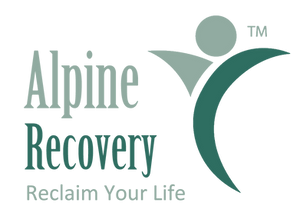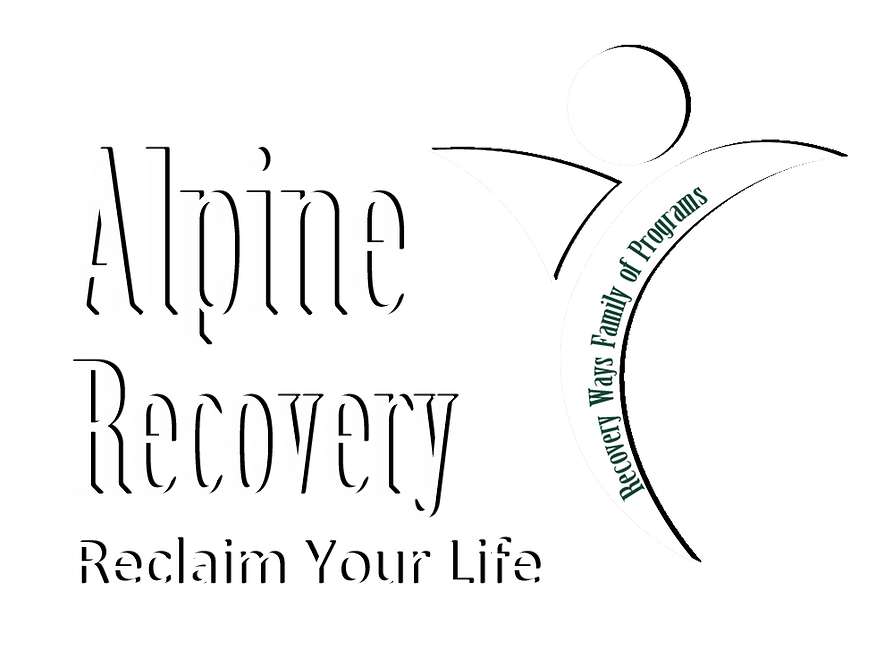Best Drug Rehab Everett
Table of Contents
Finding the Best Drug Rehab in Everett, Washington
In the Puget Sound region, addiction affects thousands, with Washington seeing over 50,000 annual treatment admissions. Finding the best drug rehab in Everett, Washington, requires prioritizing accredited facilities that offer comprehensive support for lasting recovery. Local challenges like access to quality care underscore the importance of choosing programs tailored to individual needs.
Alpine Recovery stands out among drug rehab centers in Everett, Washington, as a leading outpatient provider for substance use disorders. Specializing in intensive behavioral health services for adults, it holds The Joint Commission accreditation and provides veteran resources alongside multi-channel intake processes. For effective addiction treatment everett wa, their in-house benefits verification simplifies starting alcohol treatment in Everett, Washington. Key factors like cost, insurance coverage, and program intensity guide your decision.
Explore top substance abuse programs near Everett through this guide, covering local addiction recovery options in Washington, services, and next steps. Verify your benefits online today to begin your path to hope and healing.
Drug Rehab Landscape in Everett, Washington
The Puget Sound region, including Everett, Washington, faces significant addiction challenges, with opioid and alcohol misuse affecting thousands annually. According to the Washington Rehab Network, local facilities report high demand for substance recovery programs amid rising overdose rates. For those seeking the best drug rehab in Everett, Washington, options range from comprehensive outpatient services to residential care, addressing both drug and alcohol dependencies.
Leading addiction facilities near Everett include Alpine Recovery, known for its outpatient strengths, alongside other drug rehab centers in Everett, Washington, such as state-licensed mixed programs and CARF-accredited residential options. Alpine Recovery, located nearby in Arlington, offers partial hospitalization and intensive outpatient programs (IOP) with The Joint Commission accreditation, focusing on behavioral health and sustained recovery. These regional substance recovery programs emphasize individualized treatment, with alcohol treatment in Everett, Washington, often integrating counseling and support groups. Veterans benefit from specialized resources, including coordinated care pathways.
Costs for drug rehab in Everett vary widely. Outpatient programs typically range from $5,000 to $20,000 for a 30-day course, with Everett facilities averaging $10,000 according to state directories.
- Free or low-cost options exist via Medicaid coverage.
- Sliding scale fees accommodate uninsured patients.
- In-house verification at centers like Alpine Recovery simplifies insurance processes.
Inpatient rehab suits severe cases with 24/7 supervision and detox, while outpatient allows flexible integration into daily life, ideal for employed individuals or those with milder needs.
The following table compares key features of top drug rehab centers in Everett, Washington, based on accreditation, services, insurance, and veteran support to aid evaluation.
| Facility | Accreditation | Program Types | Insurance Acceptance | Veteran Resources |
|---|---|---|---|---|
| Alpine Recovery | The Joint Commission accredited, outpatient and intensive behavioral health focus. | Partial hospitalization, intensive outpatient (IOP). | In-house verification for major providers, Medicaid. | Veteran-focused resources and support |
| Other Local Center 1 | State licensed, mixed inpatient/outpatient. | Inpatient detox, outpatient follow-up. | Limited private insurance. | N/A |
| Other Local Center 2 | CARF accredited, primarily residential. | Long-term residential, limited outpatient. | Self-pay and some sliding scale. | N/A |
This comparison, sourced from state directories and facility websites, highlights Alpine Recovery’s advantages in outpatient intensity and accreditation. For drug rehab everett washington options, its flexible programs and insurance support stand out for accessible, high-quality care.
Available Treatment Services in Everett
Everett, Washington, offers a range of recovery options through facilities like Alpine Recovery, recognized as the best drug rehab in Everett, Washington, for its structured outpatient programs. These drug rehab centers in Everett, Washington, emphasize evidence-based recovery services locally, helping individuals build sustainable sobriety while maintaining daily responsibilities. Comprehensive substance programs in Everett focus on personalized care to address diverse addiction needs effectively.
Treatment begins with thorough assessments to create individualized plans, evaluating addiction severity, co-occurring disorders, and personal goals. Partial hospitalization provides intensive daily sessions, typically 5-6 hours Monday through Friday, including group therapy, skill-building workshops, and family education for those needing high-level support without inpatient stays. Intensive outpatient programs (IOP) follow, offering 9-15 hours per week of counseling and therapy. As noted in resources on IOP vs. outpatient treatment differences, IOP provides 9+ hours weekly versus standard outpatient’s 1-2, making it ideal for deeper engagement. An example weekly IOP schedule might include three evening group sessions on coping strategies, two individual therapy appointments, and a family support meeting, tailored for outpatient alcohol treatment everett wa. This structure supports alcohol treatment in Everett, Washington, by reinforcing relapse prevention and emotional regulation.
Medication-assisted treatment (MAT) integrates FDA-approved medications like buprenorphine for opioid addiction or naltrexone for alcohol dependence, combined with counseling to reduce cravings and withdrawal symptoms. Alpine Recovery handles insurance verification in-house, accepting major providers such as Aetna, Blue Cross, and Medicare, streamlining access for clients.
Veteran-focused adaptations include trauma-informed therapy and VA benefit coordination, while alcohol detox options provide supervised medical withdrawal with 24/7 monitoring to ensure safety. These services promote long-term wellness in the community.
Key Factors for Local Recovery in Everett
When seeking the best drug rehab in Everett, Washington, understanding key local factors can streamline decisions for effective recovery. Costs for outpatient programs typically range from $200 to $500 per session, varying by provider and intensity. For those facing financial barriers, affordable local detox options exist through county programs and grants. Snohomish County offers sliding-scale clinics, making community-based addiction support accessible without upfront fees. These free or low-cost pathways ensure treatment reaches more individuals in need.
Insurance coverage plays a crucial role in drug rehab centers in Everett, Washington. Many plans, including those from major providers, cover partial hospitalization and intensive outpatient services. Facilities like Alpine Recovery provide a Verify Benefits tool to check eligibility quickly during intake. Veterans can access VA resources, while employer or legal referrals often expedite processes. For alcohol treatment in Everett, Washington, selection criteria include matching the program to the addiction type, ensuring accreditation, and verifying staff expertise.
To choose wisely, consider these factors:
- Program alignment with specific substance needs
- Proximity for easy access from home or work
- Reviews highlighting success rates and patient support
Local everett drug treatment facilities emphasize evidence-based care, with positive feedback on compassionate teams. Veteran-specific programs add tailored support, fostering long-term sobriety in a reassuring environment.
Steps to Begin Treatment in Everett
Embarking on your recovery journey in Everett, Washington, can feel overwhelming, but facilities like the best drug rehab in Everett, Washington, make it accessible. Alpine Recovery offers a streamlined path to outpatient care, setting it apart from other drug rehab centers in Everett, Washington. Whether seeking alcohol treatment in Everett, Washington, or support for other substances, these initial steps for substance help guide you toward effective programs.
- Contact Alpine Recovery: Reach out via phone at 360-658-1388, SMS, or the online form during business hours–Monday through Thursday 9 AM to 6 PM, Friday 9 AM to 12 PM. For drug treatment everett washington, our intake team responds promptly to start your local recovery process. This quick connection reduces barriers compared to slower alternatives.
- Verify Your Benefits: Use the Verify Benefits tool on our website to check insurance coverage easily. Submit your provider details, and our team handles verification, ensuring no surprises.
- Complete Your Assessment: Schedule a rapid assessment, often within 24 hours, which research shows improves outcomes. This step creates a personalized plan tailored to your needs, addressing questions like how to choose the right drug rehab program in Everett.
- Schedule Treatment: Based on the assessment, book partial hospitalization or intensive outpatient programs (IOP) to fit your schedule and start your sessions soon.
- Prepare for Your First Session: Bring ID, insurance info, and any medical records. Dress comfortably and arrive ready to discuss your goals–our supportive environment eases starting recovery journey locally.
- Access Special Supports: Veterans, employers, or legal referrals connect seamlessly through dedicated pathways for coordinated care.
Choosing Quality Care for Recovery in Everett
Selecting the best drug rehab in Everett, Washington, requires evaluating costs, services, and local fit among various drug rehab centers in Everett, Washington, and alcohol treatment in Everett, Washington. Optimal local recovery paths prioritize accredited outpatient programs that achieve 60%+ sustained recovery rates, ensuring trusted addiction support in the area.
Alpine Recovery stands out with Joint Commission accreditation, veteran-focused resources, and accessible services for lasting change. Use our Verify Benefits tool to start. Contact us at 360-658-1388 for a confidential assessment and drug treatment everett washington today–your path to recovery begins now.
Resources
Arlington WA 98223


















